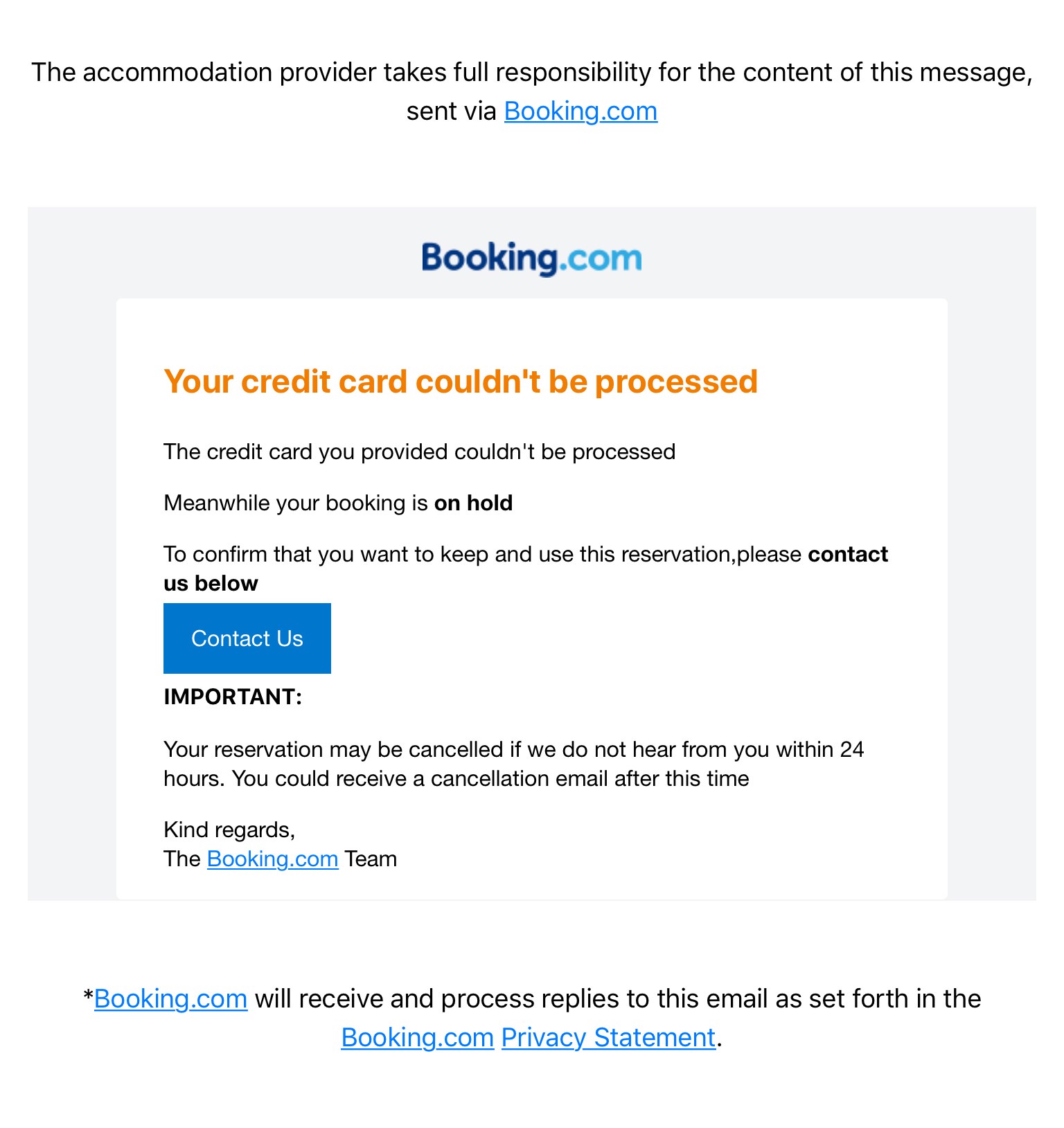
Emails capitalizing by triggering chaos in holiday season

Folks across America are gearing up for the holiday season as everyone is off to trips planned months in advance. But what happens when someone suddenly receives an email that threatens to derail these plans?
The panic that such messages can create is being weaponized by scammers against travellers who have booked their accommodations via Booking.com, to demand bank card details under the guise of confirming hotel payments. According to reports, the fraudsters are able to send fake emails to users of the platform, since there is a breach in Booking.com's email system. This development also raises concerns among customers about the security of their hotel reservations as well as personal information.
Wave of deceptive emails unleashed against travellers
In recent weeks with the holidays on the horizon, numerous Booking.com customers have reported receiving deceptive emails, allegedly from noreply@booking.com, urging them to verify hotel payments. The scam threatened them with cancellation of hotel reservations, unless they provided their bank card details through embedded links. Customers have raised concerns about the legitimacy of these emails and the potential compromise of their sensitive information.
Read also:Big Booty Bailey Videos A Comprehensive Guide To Her Rise Impact And Popularity
Booking.com denies hacking claims, blames hotels
Despite the alarming reports, Booking.com has denied any breach in its systems and attributes the scam emails to compromises in the email systems of its partner hotels. This has led to a dispute between the affected hotels and Booking.com, with the former insisting that the issue originates from the platform rather than their systems. The fallout of the scam has further created chaos in the industry, along with the users affected and those at risk of being targeted.

Ordeal of customers fuels concerns
Several customers have shared their unsettling experiences, amplifying concerns about the security of Booking.com's communication channels. One customer, Julia Berridge, reported cancelling her bank card after complying with the email instructions, emphasizing the potential risks customers face. Others, like Kate Wright, had to pay additional charges after responding to similar emails, highlighting the urgent need for a resolution.
Booking.com's response and customer support
In response to the controversy, Booking.com maintains that its backend systems remain secure and uncompromised. The company attributes the fraudulent emails to phishing tactics targeting its accommodation partners. Booking.com urges customers to verify payment policies directly on the platform and promises to support those affected by the scam. The dispute between Booking.com and partner hotels continues, raising questions about the platform's responsibility in such situations.
As Booking.com users grapple with the aftermath of deceptive emails, the platform faces both technical and reputational challenges. The ongoing dispute between the site and hotels over the root of the problem, complicates the situation further, leaving travellers wary of potential security risks. As the company investigates the matter, affected customers await further guidance on protecting their personal and financial information while using the popular booking platform.



